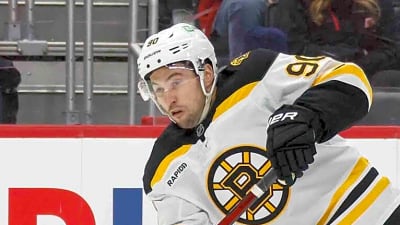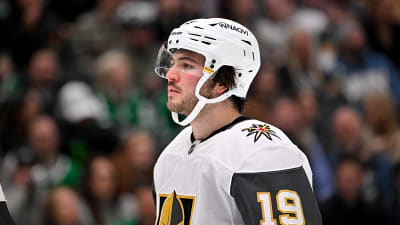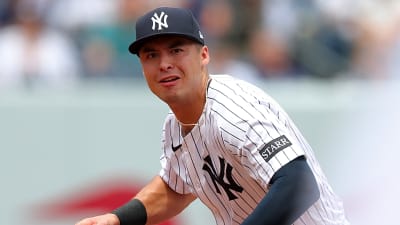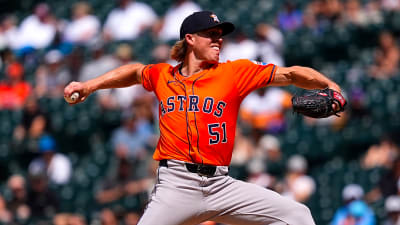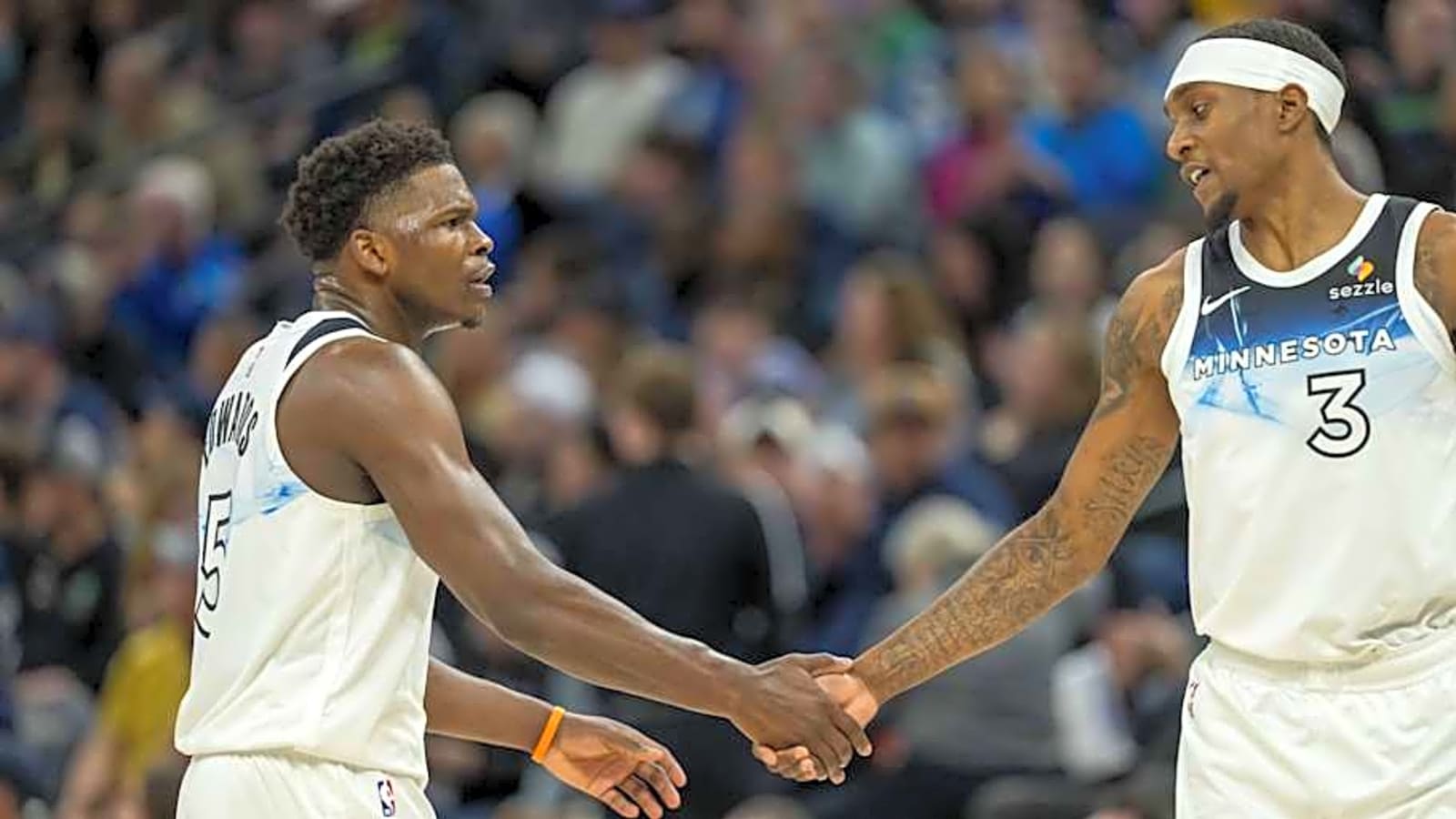
Several of the Timberwolves' competitors in the stacked Western Conference have been busy loading up their rosters this offseason. The Rockets traded for Kevin Durant and made a couple depth additions. The Nuggets acquired Cam Johnson and a few reliable veterans. The Mavericks lucked into the first overall pick, Cooper Flagg. The Lakers signed DeAndre Ayton.
Meanwhile, Tim Connelly and the Wolves appear to be content with what they already have. Their big moves were to ink both Naz Reid and Julius Randle to new long-term contracts to keep them in Minnesota. A week into the offseason, the Wolves have lost one member of their rotation (Nickeil Alexander-Walker) for financial reasons and added zero players who will see major minutes next season. They'll inevitably pick up a cheap free agent or two in the coming weeks, but as of now, their only newcomers are a couple 18-year-old project big men via the draft.
What that seems to signal is that Connelly wants to "run it back" next season, banking on continuity and internal development from the team's core stars and young players. While that may not be the most exciting offseason path, it's easy to see how it could pay off for Minnesota.
In two of his first three offseasons as the Timberwolves' president of basketball operations, Connelly made a big, calculated swing. In 2022, he sent a major haul to the Jazz to land center Rudy Gobert, pairing him with Karl-Anthony Towns in an unorthodox frontcourt. Last year, right before the start of the season, Connelly stunned the NBA world by sending Towns to the Knicks for Julius Randle, Donte DiVincenzo, and a first-round pick — a move made both for basketball reasons and long-term financial flexibility.
Both times, it took a while for the Wolves to coalesce after the roster shakeup. They had to learn how to play with Gobert, but in his second season in Minnesota, he won his fourth defensive player of the year award and helped the Wolves reach their first conference finals in 20 years. Following the KAT trade, much of this past season was characterized by inconsistency, but Randle found his stride in the spring and helped the Wolves get back to the conference finals as a No. 6 seed.
One potential benefit of not making any seismic change this offseason would be avoiding the adjustment period that often comes after such a move. Randle and DiVincenzo should be ready to hit the ground running in their second seasons in Minnesota now that they have a year of chemistry with their teammates under their belts. Albeit without Alexander-Walker, who has been a key two-way force over the past couple seasons, the Wolves look set to begin next season with almost all of the group that went 25-6 from March 2 through May 14 this year.
It's important to remember that the Wolves' three long-term core pieces — Anthony Edwards, Jaden McDaniels, and Reid — are not finished products. Edwards turns 24 next month and has gotten better in each of his first five seasons. McDaniels, who turns 25 before the season, made a big scoring leap up to nearly 15 points per game this past postseason. Naz Reid is approaching his 26th birthday and may just be entering his prime. Complemented by veterans like Randle, Gobert, and DiVincenzo, the Wolves' three mid-20s stars will largely determine the team's ceiling next season and beyond.
And while the loss of Alexander-Walker and the decline of Mike Conley could threaten the Wolves' backcourt stability, reinforcements are already in place. Terrence Shannon Jr., who is a year older than Edwards despite being drafted four years after him, was impressive in the OKC series and will receive many of NAW's minutes next season. Rob Dillingham, last year's eighth overall pick, could be set to earn a big role at the point guard position in year two. While Shannon helps replace Alexander-Walker's offense, Jaylen Clark can be called upon when Chris Finch needs more perimeter defense. Even after losing NAW and making no veteran additions, the Wolves already have ten players worthy of rotational minutes in the upcoming season.
The question, of course, is whether or not the roster that's in place is good enough to get the Wolves over the hump in the West. Coming off their championship, the Thunder aren't going anywhere anytime soon. The Nuggets, Mavericks, and Rockets look highly dangerous. The Lakers, Clippers, and Warriors remain in win-now mode. The Spurs and Pelicans could be sneaky. The Grizzlies and Suns are wild cards.
Connelly seems to think that this Wolves group has what it takes. The plan, barring a surprise, is to lean on chemistry and internal improvement. It isn't flashy, but it might just be the correct approach as the Wolves look to bring home the first title in franchise history.
Recommended articles
More must-reads:
- Former first-round pick gets traded for second time in two days
- Three-time MVP won't sign extension with Nuggets this offseason
- The 'Active non-US born NBA points leaders' quiz
Breaking News
Trending News
Customize Your Newsletter
 +
+
Get the latest news and rumors, customized to your favorite sports and teams. Emailed daily. Always free!
